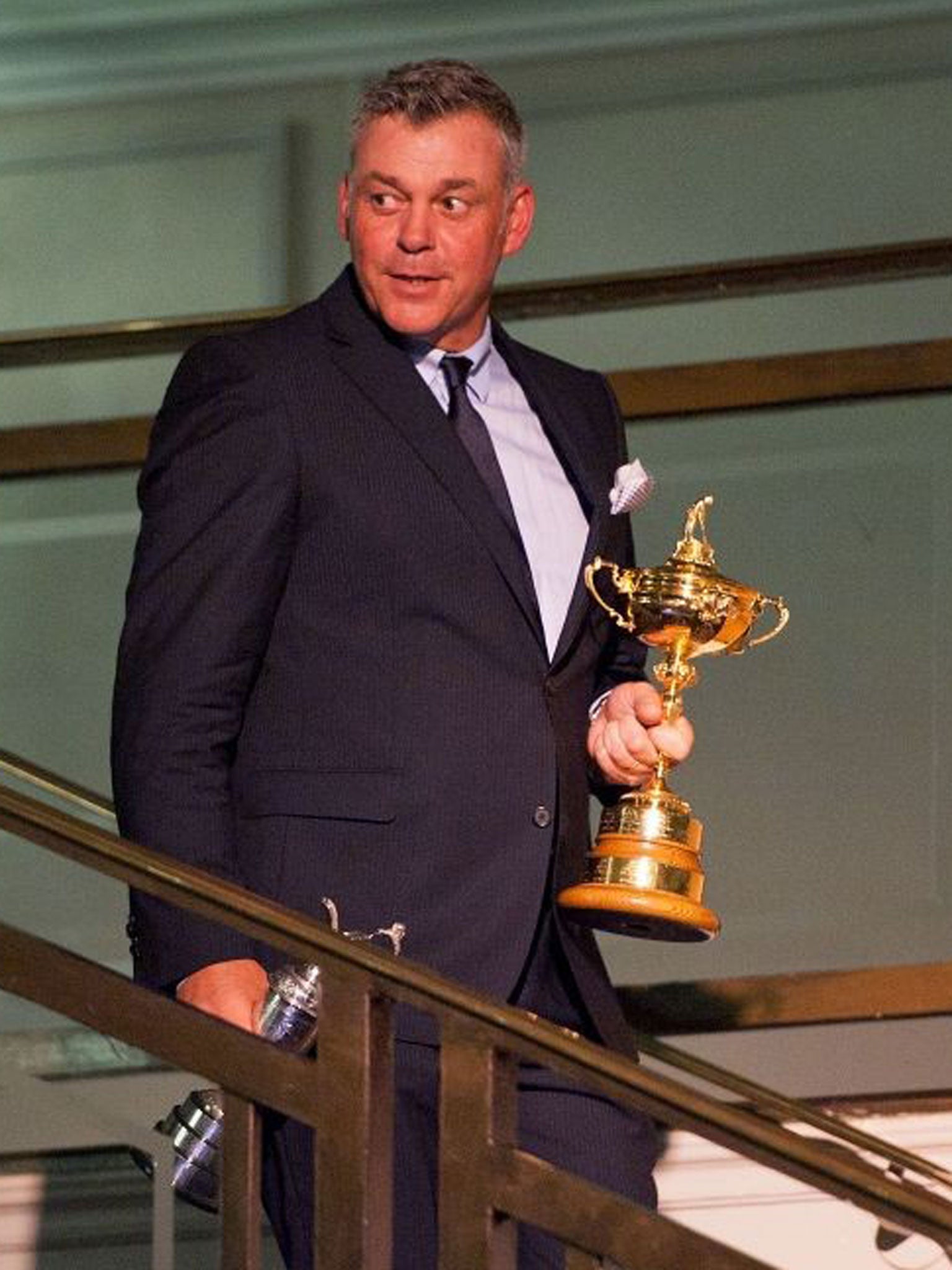Kevin Garside: It's time golf woke up to Ryder Cup captaincy's big business appeal
The Way I See It: Europe must bring in a process that reflects the event’s shift in importance

Once little more than a ceremonial role, the Ryder Cup captaincy has acquired a value and a desirability that have caught golf in an anachronistic trap. So much about the game is conservative in character, genteel of habit, and in some respects utterly outmoded. The custodians of Muirfield, host to the Open Championship in July, are heading for a right old shellacking over its men-only policy that in itself echoes the inequality enshrined by the game's leadership, the Royal and Ancient Golf Club, which does not permit female membership either.
The issue surrounding the Ryder Cup captaincy is less pernicious but equally revealing, and demonstrates the need for a rapid upgrade in thinking. Darren Clarke and Paul McGinley have been made to feel almost guilty about expressing their desire to lead. Who would not want that badge of honour? Not so long ago, plenty was the answer. Bernard Gallacher detailed in these pages last week how he combined the role with his job as pro at Wentworth. It was less about "who deserves it?" than "who can we get to do it?". The process of selecting the team outfits for the four days took 15 minutes with a kit rep in the pro shop. Now the lads wear Prada and have wardrobe assistants to press their slacks.
Interestingly, Clarke's upswing in form at the end of last year and the start of this at the Volvo Champions event in South Africa has forced him to reconsider. But since there is no formal candidacy, what is there to think about? Players can only be invited to take up the role. They cannot declare then run for office. Yet in the three months since Jose Maria Olazabal returned victoriously from Medinah, Clarke has been locked in a virtual race with McGinley.
Tomorrow, the 15-man Tournament Players committee, chaired by the venerable Thomas Bjorn, will gather to decide to whom the offer shall be made. A chorus of "if it ain't broke don't fix it" echoes around the European game. It is an argument made by both Gallacher and Celtic Manor incumbent Colin Montgomerie, a surprise contender again at Gleneagles following Clarke's prevarication.
Five wins in the last six matches makes a powerful case for maintaining the status quo. The job has traditionally been seen as a reward for services rendered, a European Tour gold clock for high achievers or loyal comrades, who have delivered heroically when fate called. Clarke belongs to the former classification with Olazabal, Monty, Sir Nick Faldo, Ian Woosnam, Bernhard Langer, Severiano Ballesteros et al. McGinley is firmly in the Gallacher camp.
Europe would probably arrive at the same individual whichever selection method they adopt. But by bringing the process into the 21st century the game might avoid the confusion and embarrassment of forcing players to raise their hands while at the same time keeping them firmly in their pockets.
With the job carrying a commercial value estimated at £1m, you can see the appeal. It is effectively an 18-month posting – two years if you include the surreptitious tap dance surrounding candidacy. It requires acts of statesmanship and projection unknown to Gallacher, who more or less started work when he sat down to consider pairings in the week of competition.
Gallacher walked around Medinah almost unnoticed by the galleries in his role as radio pundit for the BBC. He pulled his speech from his blazer pocket at Kiawah Island. Olazabal read his from an autocue at an opening ceremony that owed more to a Broadway production than golf, and saw his profile rocket in a way Gallacher could not dream of.
It is not only showbusiness but big business now. The appointment of Tom Watson to the American captaincy is a nod to both elements. Europe need not fall into the same personality trap but it must introduce a selection process that reflects the shift in importance of the event and its financial weight that has become central to the European Tour. That, as much as the choice of captain, should be on the agenda tomorrow night.
Greater commercial integration with the PGA of America is being sought that will see sponsor values hit eight figures. Already the European Tour uses the Ryder Cup as a lever to attract sponsors to routine tour events, for example BMW, whose badge is carried at four tournaments around the world as well as the biennial event. Sky cameras were rolling in Durban last week in part as a result of the deal done to broadcast the Ryder Cup. The authorities in Chicago estimated the event was worth $135m (£100m) to the local economy. No wonder the Gleneagles outreach party was led in Chicago by Scotland's first minister, Alex Salmond.
This is why the captaincy weighs more heavily than ever and why the choice should not be vulnerable to shabby speculation, which reflects poorly on a European Tour executive that in other respects is needle sharp.
Subscribe to Independent Premium to bookmark this article
Want to bookmark your favourite articles and stories to read or reference later? Start your Independent Premium subscription today.

Join our commenting forum
Join thought-provoking conversations, follow other Independent readers and see their replies